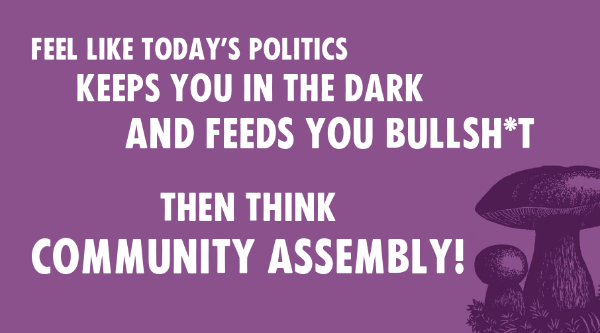Influencing Political Elections
We know that politics is broken and that many rebels refuse to engage in elections, but during high pressured times such as when there are national, devolved and local elections, we can use the opportunity to pick up public interest in the climate and nature emergency and show them a new way of doing politics through community and citizens' assemblies.
Engaging in traditional approaches such as letter writing, signing petitions, door knocking etc are not always effective and so not necessarily a good use of rebels' time and energy. Targeting marginal seats is a good way to really get candidates to listen, however. For example, during the 2024 General Election, XR designed a Map of XR Local Groups within marginal Westminster seats

Elections Landscape of Opportunity
- Candidates will focus on what they believe to be important to their voters, so it is up to us to turn up in numbers on common issues of concern, visiting candidates, calling their offices and writing via platforms, such as Write To Them, or by setting up petitions.
- We can use community assemblies, hustings and surveys to tell candidates what truly matters to people locally if we understand the political process.
-
National Elections take place for:
- local and district councils,
- mayors in England,
- police and crime commissioners in England and Wales and
- the London Assembly.
- There were no elections in Scotland or Northern Ireland for 2024. 2026 sees elections in the Welsh Senedd. It is worth building into your activist calendar those significant times for building campaings for influencing your politicians.
- The 'sweet spot' for action and local community assemblies is 4-6 weeks before the election, for peak public, media and political attention.
- However, there may not always be a good lead in time, if assembly organiser capacity is low in your region during that time. We don't want to risk burn-out and loss of momentum/enthusiasm by pushing too fast and not leaving enough time to offer a positive experience of an assembly. However what we can do is begin to set the agenda in interim periods between elections, by really building connections with our allies and allowing for stronger collaboration during organising, so that your assembly recommendations are stronger and volunteer energies more effectively channeled.
- A 'General Election Pivot' can be planned for, during which time:
- Local and general elections may provide an effective context to encourage you to redouble efforts around assemblies to highlight local issues of concern.
- A series of targeted, impactful actions can be undertaken, designed to maximise media coverage and to demonstrate that the current system isn't working.
- This will also link with a Political Influencing campaign encouraging political parties to include support for a UK-wide Citizens' Assembly on Climate and Ecological Justice in their manifestos.
- XRUK, alongside other organisations in the democracy space is actively encouraging and supporting Local Groups to run assemblies because it's the right way to do politics.
Why Local Issues Matter
Local elections provide opportunities to:
- Mobilise local communities by focusing on local issues through assemblies.
- Cement the alliances that have already been built with like-minded organisations and groups.
- Build coalitions by meeting people where they’re at and find common causes with a broad range of groups.
- Keep up the pressure on local candidates by inviting them to respond!
'Persuade Elections' Candidates Commit to:
- Declaring a climate and nature emergency.
- Involving communities via deliberative assemblies in local and national decision-making about issues that matter most to them.
- Being led by the recommendations of assemblies.
Three Questions to Get Started With
- Is there an election in your area? Use the VoteClimate Local Elections Finder or view them on a map.
- What is your council’s performance on the climate emergency scorecard? Use My Society and the Climate Action score rating websites to find out.
- Have your constituency boundaries changed? They will be of particular interest to the media as they could indicate the outcome of the next General Election. Look for the key battleground seats analysis on the VoteClimate website.
What Can We Do?
- Use the demands / requests listed above.
- Run Community Assemblies on local concerns in-person or online, or ask for support to run hybrid assemblies.
- Run combined Hustings and Community Assemblies. Invite expert speakers, then break-out groups to discuss and decide on questions to ask candidates.
- Record candidates' responses and post them on your social media accounts - hold them to account if they later break commitments.
Guides to Running Hustings In-Person or Online:
- Electoral Commission Guidance
- In-person - Friends of the Earth Climate Hustings and Quakers Hustings
- Online - Joint Public Issues Team [faith-based groups] Online Version of Traditional Hustings
- If you need a paid-for Zoom account, contact your Region or Nation
- Zoom Guides:
- hosting large online meetings (any sized meeting)
- Zoom meetings advice
- Outreach polling board example questions / survey questions:
- How broken is our political system? [Totally | A little | It’s OK]
- Are politicians working for your interests? [Yes | Somewhat | No]
- Have you heard of deliberative decision making/assemblies? [Yes | No]
- What’s of local concern to you? [Write on a Post-it note]
- Use template Elections Flyer Front & Back [A5]
